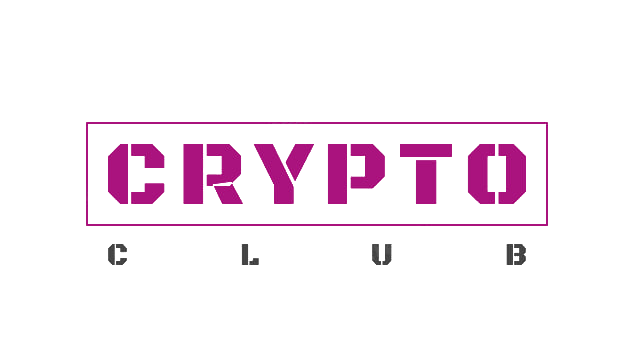As the cryptocurrency market continues to expand and mature, a growing number of exchanges are emerging to cater to the needs of traders and investors. Choosing the right cryptocurrency exchange can be a daunting task, given the vast array of options available. In this comprehensive guide, we will explore the essential factors to consider when selecting a cryptocurrency exchange, ensuring you find the platform that best suits your requirements and preferences.
Best Cryptocurrency Exchanges
Security
Security should be a top priority when choosing a cryptocurrency exchange. Examine the security features and protocols implemented by the exchange to protect user funds and data. Key security aspects to consider include:
- a. Two-factor authentication (2FA): Ensure the exchange supports 2FA to provide an additional layer of security for your account.
- b. Cold storage: Look for exchanges that store a significant portion of user funds in cold storage (offline) to minimize the risk of theft.
- c. Encryption: Verify that the exchange employs robust encryption methods to protect user data and communications.
- d. Insurance: Some exchanges offer insurance coverage for user funds in the event of a security breach. This can provide an additional layer of protection for your investments.
Reputation
Reputation is a crucial factor to consider when selecting a cryptocurrency exchange. Research the exchange’s history, management team, and overall standing within the industry. Key aspects to consider include:
- a. User reviews: Look for user reviews and testimonials to gauge the experiences of other traders on the platform.
- b. Industry endorsements: Check if the exchange has received any endorsements or partnerships from reputable organizations within the crypto industry.
- c. Regulatory compliance: Determine whether the exchange is compliant with relevant regulatory requirements in its jurisdiction, as this can be an indicator of its legitimacy and commitment to security.
Supported Cryptocurrencies and Trading Pairs
Consider the range of cryptocurrencies and trading pairs supported by the exchange. Depending on your trading and investment goals, you may require access to a diverse range of assets. Key aspects to consider include:
- a. Supported cryptocurrencies: Assess the number and variety of cryptocurrencies supported by the exchange. Some platforms focus on popular coins, while others offer a more extensive selection, including altcoins and tokens.
- b. Trading pairs: Examine the available trading pairs, such as fiat-to-crypto, crypto-to-crypto, and stablecoin pairs. This will determine the flexibility and options available for trading and investing.
Fees and Limits
Fees and limits are essential factors to consider when selecting a cryptocurrency exchange, as they can significantly impact your profitability. Key aspects to consider include:
- a. Trading fees: Compare the trading fees charged by the exchange, which can include maker and taker fees, as well as any additional costs for specific order types.
- b. Deposit and withdrawal fees: Investigate the fees associated with depositing and withdrawing funds, including any fees for specific payment methods (e.g., credit card, wire transfer).
- c. Limits: Assess the exchange’s limits on deposits, withdrawals, and trading. Some platforms impose restrictions based on factors such as account verification level or jurisdiction.
User Interface and Experience
The user interface and overall experience of a cryptocurrency exchange play a significant role in determining its suitability for your needs. Key aspects to consider include:
- a. Ease of use: Assess the intuitiveness and user-friendliness of the exchange’s interface, particularly if you are a beginner or less tech-savvy.
- b. Charting tools: Determine whether the exchange offers adequate charting tools and technical indicators to support your trading strategies.
- c. Mobile app: Check if the exchange provides a mobile app for trading on-the-go, and evaluate its usability and features.
Customer Support
Quality customer support is crucial when choosing a cryptocurrency exchange, as it can significantly impact your experience on the platform. Key aspects to consider include:
- a. Availability: Assess the availability of the exchange’s customer support team, including their hours of operation and response times.
- b. Communication channels: Determine the communication channels through which the exchange offers support, such as email, live chat, phone, or social media.
- c. Quality of support: Gauge the quality of the exchange’s customer support by reviewing user feedback and, if possible, testing their responsiveness and helpfulness yourself.
Fiat Currency Support and Payment Methods
The availability of fiat currency support and payment methods is an essential factor for many traders and investors. Key aspects to consider include:
- a. Supported fiat currencies: Determine whether the exchange supports the fiat currency you wish to use for trading. Some platforms support multiple fiat currencies, while others are limited to specific ones or only offer crypto-to-crypto trading.
- b. Payment methods: Investigate the available payment methods for depositing and withdrawing fiat currencies, such as bank transfers, credit cards, or e-wallets. Consider the convenience and cost associated with each method.
Geographic Restrictions
Some cryptocurrency exchanges impose geographic restrictions based on factors such as local regulations or licensing requirements. Before selecting an exchange, ensure that it is accessible and operates legally within your jurisdiction.
Verification Requirements and Account Tiers
Many cryptocurrency exchanges require users to complete a verification process to access certain features or increase their account limits. Key aspects to consider include:
- a. Verification process: Assess the exchange’s verification requirements, such as the submission of personal identification documents or proof of address. Consider the time it takes to complete the verification process.
- b. Account tiers: Some exchanges offer tiered account levels, with each tier providing increased access to features or higher limits. Determine whether the available account tiers align with your trading and investment needs.
Liquidity
Liquidity refers to the ease with which a cryptocurrency can be bought or sold on an exchange without significantly affecting its price. High liquidity is essential for minimizing slippage and facilitating efficient order execution. To assess an exchange’s liquidity, consider:
- a. Trading volume: Examine the exchange’s trading volume, as higher trading volume typically correlates with higher liquidity.
- b. Order book depth: Review the depth of the exchange’s order book, which can provide an indication of the liquidity available for various trading pairs.
Conclusion
Choosing the right cryptocurrency exchange is a critical decision that can significantly impact your trading and investment success. By carefully considering the factors outlined in this comprehensive guide, you can find a platform that meets your needs and preferences, ultimately helping you to navigate the complex world of cryptocurrency trading with confidence and ease. As the market continues to evolve, it is crucial to stay informed about new developments and emerging trends, ensuring that your chosen exchange remains the best option for your unique requirements.

